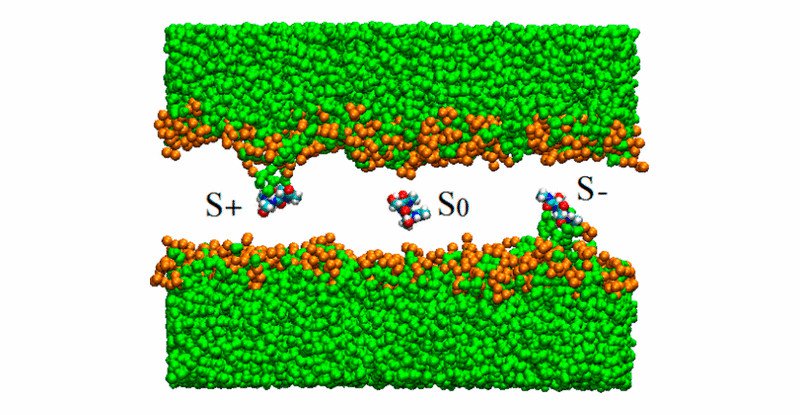
April 3, 2018
Research Highlight
Dipeptide Permeation of Phospholipid Membranes

Representation of the permeation of dipeptides across a phospholipid membrane. From Wei and Pohorille (2017).Image credit: Wei and Pohorille (2017) J. Phys. Chem. B, 2017, 121 (42), pp 9859–9867.
Scientists studying the interface of water and phospholipid membranes have used simulations to better understand mechanisms behind membrane permeability for dipeptides (molecules composed of two amino acid residues). The ability of molecules to diffuse across a membrane is an important area of study for astrobiologists, because containing chemical reactions within a chamber surrounded by a semi-permeable membrane is thought to be a key step in the formation of life’s first cells. Membrane permeability is also relevant to modern medicine, and can affect the delivery of therapeutic agents in patients.
The study, “Sequence-Dependent Interfacial Adsorption and Permeation of Dipeptides across Phospholipid Membranes,” was published in The Journal of Physical Chemistry B. The work was supported by NASA Astrobiology through the Exobiology & Evolutionary Biology Program.